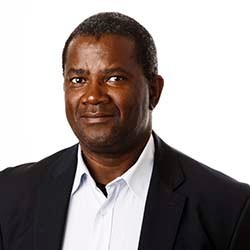Ethiopia
The Context
With 105 million inhabitants, Ethiopia is one of the most populous countries in the world. It is also one of the top performing economies in sub-Saharan Africa.
Agriculture is the mainstay of the economy. Exports rely almost entirely on agricultural commodities such as coffee, seeds, pulses and livestock. The country has experienced strong economic growth in recent years, and substantial progress has also been made in social and human development over the last decade. Yet poverty remains a major challenge.
Around 85 per cent of Ethiopia’s inhabitants live in rural areas. The 2015/16 El Niño induced drought had severe impact on agricultural production (crop and livestock), which left nearly 10 million people in need of food assistance. However, improved weather conditions and measures taken by the government to mitigate the effects of the preceding year’s drought have improved livestock production and productivity during 2016/17.
Many rural areas haven’t seen normal rains in years, leaving the population extremely vulnerable to another crisis.
Ethiopia is also one of the largest refugee-hosting countries in the world. It has over 905,831 registered refugees (as of August 2018), most of them from Eritrea, Somalia, South Sudan and Sudan.
Ethiopia is one of the fastest growing countries in the world, with a population growth rate of 2.6 per cent annually. This is putting great pressure on land resources, worsening environmental degradation and raising the risk of food shortages.
Agricultural productivity is being hampered by land degradation, poor water management, low technology usage and an underdeveloped marketing system, among other factors. The country loses about 2 billion tons of fertile soils annually to land degradation, and the siltation of water bodies is already a major threat to irrigation development.
Ethiopia is also facing a youth bulge. More than 40 per cent of the population is below the age of 15, and 71 per cent is under 30.
In both rural and urban areas, many young people, particularly young women, are unemployed or working in the informal sector. Most young people live in rural areas, where livelihood opportunities are increasingly scarce.
The Strategy
In Ethiopia, IFAD supports rural people in raising their incomes and improving food security, as well as increasing their contribution to the country’s economic development.
IFAD’s loans support programmes that provide smallholder farmers, pastoralists and agro-pastoralists with the assets needed to enhance their productivity and resilience. They help them gain access to natural resources, technology, finance, institutional capacity and markets.
IFAD’s investments target food insecure areas of the country, focussing on the poorest communities. They are intended to benefit particularly women and young people.
The IFAD country programme has two main objectives:
- improved resilience and productivity of ecosystems and livelihoods through improved management of natural resources, particularly water;
- expanded linkages with the private sector to ensure increased and sustained access to markets, finance and agricultural technology.
Key areas of investment include:
- small-scale irrigation development;
- sustainable natural resource management;
- rural financial inclusion;
- community-driven development among pastoral groups;
- knowledge exchange through partnerships with the private sector, research institutions and other developing countries.
Country Facts
- Ethiopian smallholder farmers produce 90 to 95 per cent of the country’s agricultural output.
- Around 85 per cent of the country’s 105 million inhabitants live in rural areas, and inclusive agricultural growth is a major driver of poverty reduction.
